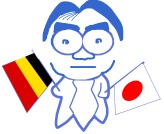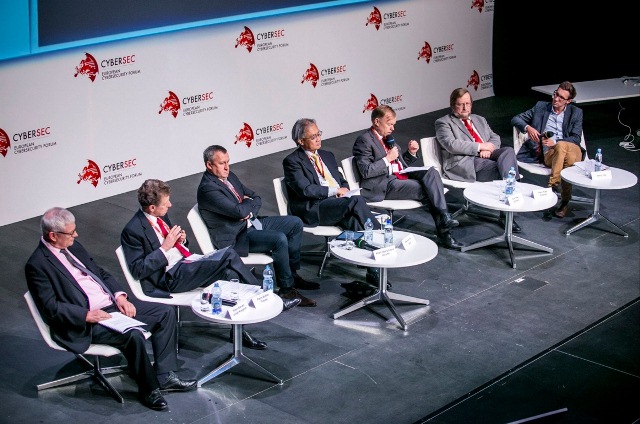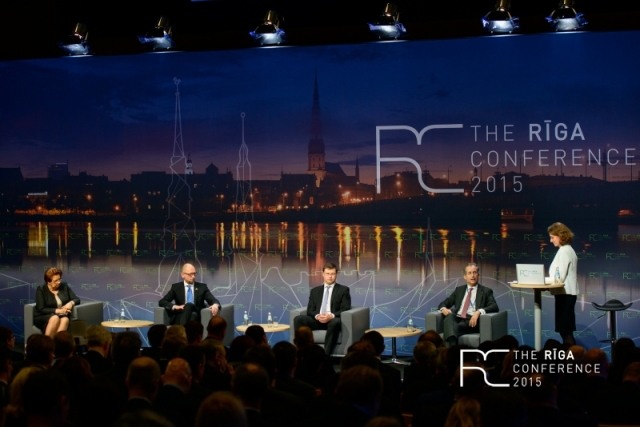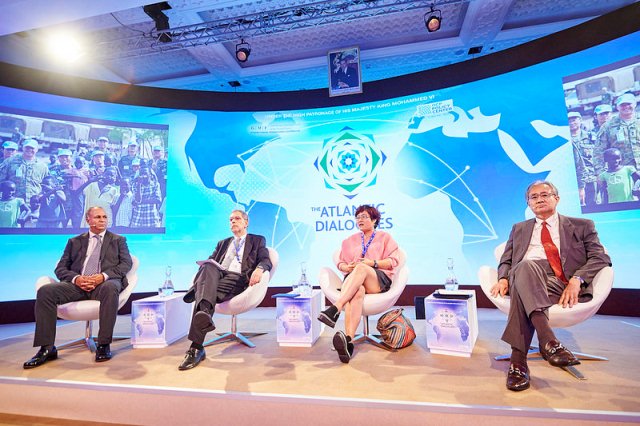Love Letter from Brussels
<< Back List Next >>

LFB 25: Kindness is never lost (No.25)
November 12, 2015
European Public Diplomacy Ambassador
In addition to bearing the titles Ambassador of Japan to Belgium and Representative of Japan to the NATO, I also take upon me the role of Ambassador in Charge of Public Diplomacy in Europe. Basically, every European country has its ambassador who is also in charge of public diplomacy. However, occasionally there are important seminars or conferences in a particular field which require travel of officials from Tokyo such as panelists. On the other hand, due to time and budget restraints it’s not always possible to send someone from Tokyo. So I think it only makes sense to place a person with a corresponding function in the area in advance. If the same person attends various conferences in that region his or her network will broaden and accordingly, it will be easier to establish his presence.
This is the first time that such a position is created and every day is always trial and error on how to fulfill these responsibilities. I strive to participate as much as possible to the seminars and conferences to which attendance is requested by any Embassy in Europe. By the way, during the last two months and a half since September after the vacation, it looks like this:
- • 10 – 12 September: Participated to the Arrábida Meetings at the Arrábida Monastery, on the outskirts of Lisbon.
- • 27 – 30 September: participated in the international panel at the first European Cyber Security Forum in Krakow, Poland.
- • 21 – 23 October: Two lectures in Lithuania
- • 30 October – 1 November: participated in a panel about the advancement of China, Japan and India in Africa and Latin America at the Atlantic Dialogues in Marrakech, hosted by the German Marshal Fund.
- • 3 – 4 November: Lunchtime lecture in London at a workshop on the Japan-NATO Cooperation regarding maritime security, hosted by the King’s College and the Sasagawa Foundation.
- • 6 – 7 November: attendance to the 10th Riga Conference in Latvia
Before the year ends, at the beginning of December, I’m also planning to participate in some panels at the Seminar on the Future of Japan-Europe Relations, held in Berlin under the auspices of the ECFR (European Council on Foreign Relations).
“East” and “South”
Wherever you go in Europe these days, the big discussion is how to handle the “East” and the “South”.
The essence of the “East” is, needless to say, how to deal with the Ukraine and Crimea problem and beyond that means Russia. This doesn’t mean just solving the Ukraine Problem; it also entails the question on how to deal with Moldavia, Georgia and moreover Belarus in relation to the enlargement of Europe. How do we respond to the insecurity in the three Baltic countries on the NATO-EU forefront? How do we cope with a so-called “Hybrid war” (A dispute in the middle ground of a civil war and an actual war)? How do we deal with the current full blown propaganda war and moreover, in the broadest sense, how will we view our future relationship with Russia? These are questions with a very broad content and time axis.
“The South”, first of all, is how to respond to Syria, Iraq and the so-called IS in the South East and how to deal with the torrent-like influx of refugees. Recently, however, the discussions on how to tackle the increasingly wider “Arc of Instability”, spreading to the South West and more specifically, the discussions on how to guide the “Fragile States” (states in which the government are weak) such as the 5 countries in the Sahel region such as Mali, and Libya, Somalia, North and South Sudan towards stability, have been increasing more and more.
And of course, the more one goes to the East, the more the gravity of Eastern problems increases and the more one goes to the South, the more the gravity of Southern problems increases.Kindness is never lost
My role in this is, first of all, to improve the understanding by explaining in a clear way Japan’s view on the situation in terms of these problems and to explain what Japan regards as important policy goals and what needs to be done to achieve them. At the same time it is important to state our opinion on what Western countries ought to do. It is quite difficult to have it as we would like it, but if you are not at the spot, nothing can ever be started. Therefore, I would like to continue to do my best within my limited time available.
Finally, I would like to share one experience that has remained in my memory from the meetings I attended recently. It concerns the time I attended the “Atlantic Dialogues” in Marrakech. In the panel where I was on, with regard to Japan’s involvement in Latin America and Africa, I explained that it is not at all about the “response to China’s advance”, but, each with a long history, it is all about the spirit of cooperation to the efforts of our counterparts in order to foster the industries that our counterparts desire and moreover can support themselves in the future with a sense of ownership.
Actually, it was the following day, during a session about “Africa’s Green Revolution (the concept that Africa is the key to increase the food production in the world in the future)”. The Brazilian Minister of Finance, who was one of the panelists, spoke eloquently at the very beginning of his speech about the fact that Brazil has become the world’s largest producer of soybeans thanks to Japan’s cooperation and said that, together with Japan, Brazil has been sharing that successful experience in Mozambique in Africa. By the way, I was the only participant from Japan, so it is highly unlikely that he made such a statement just for me. Japan’s longstanding and steady endeavors for our partners certainly reached them, resulting in these partners taking care of our public relations in a quicker and more efficient way than we ourselves could have done. This all took place in a well air-conditioned room, but it was heartwarming.



